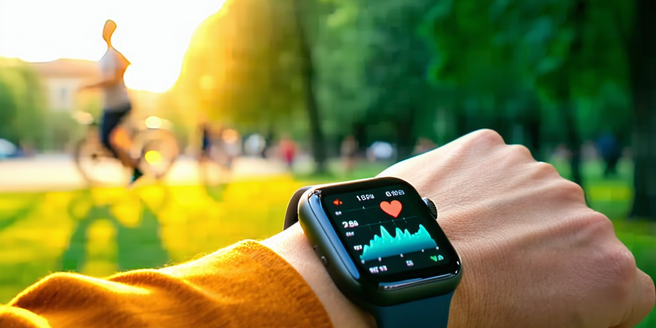Innovative Fitness Trackers And Wellness

The Evolution of Fitness Trackers
The journey of fitness trackers from basic pedometers to sophisticated devices has been remarkable. Early models were limited to counting steps, but technological advancements have transformed them into multipurpose wellness companions. Modern trackers not only track steps but also monitor heart rate, sleep patterns, and even stress levels. Smart integrations allow them to sync seamlessly with other devices, providing users with comprehensive health insights. This evolution is driven by consumer demand for more data on personal health, encouraging manufacturers to innovate and improve accuracy, design, and functionality continually. Enhanced battery life and water-resistant features have made them more practical for everyday use. The integration of AI and machine learning has further revolutionized the way these devices analyze data, offering personalized health tips and progress reports.
Key Features in Modern Wellness Devices
Modern wellness devices are rich in features that cater to a wide range of health and fitness needs. Notably, sleep tracking and heart rate monitoring have become standard inclusions, offering users valuable insights into their overall well-being. Many devices now include GPS functionality, allowing for detailed mapping of outdoor activities and improved accuracy in distance recording. Other key features include stress and hydration tracking, as well as menstrual cycle monitoring for women. The integration of virtual coaching and guided workouts offers users personalized fitness programs, enhancing their exercise routines. Additionally, modern wellness devices boast long battery lives, stylish aesthetics, and water-resistant designs, making them suitable for all lifestyles. Bluetooth connectivity ensures seamless integration with smartphones, allowing users to receive notifications and control music during workouts.
How Fitness Trackers Enhance Health
Fitness trackers play a crucial role in enhancing personal health by offering valuable insights and encouraging an active lifestyle. These devices provide real-time feedback on various metrics, such as step count, calorie consumption, and heart rate. This information empowers users to make informed decisions regarding their daily activities and dietary habits. By setting personalized goals and monitoring progress, users are motivated to increase their physical activity levels, thus promoting a healthier lifestyle. Fitness trackers also support mental well-being by tracking sleep patterns and stress levels, helping individuals to understand and manage their mental health better. Moreover, many devices offer reminders to stay active throughout the day, ensuring users remain attentive to their health and fitness goals.
Top Brands Revolutionizing the Market
Several leading brands are at the forefront of innovation in the fitness tracker and wellness device market. Companies like Fitbit, Garmin, and Apple continuously push the boundaries of technology, delivering high-quality products that resonate with consumers. Fitbit, for instance, is renowned for its user-friendly interfaces and comprehensive health tracking features. Garmin appeals to athletes with its precise GPS and performance metrics, while Apple’s smartwatches offer seamless integration with daily digital life and a range of health monitoring capabilities. Samsung and Xiaomi also provide strong competition, offering affordable yet feature-rich alternatives. These brands are committed to research and development, driving technological advancements and setting trends that shape the future of personal wellness devices.
The Role of Technology in Personal Wellness
Technology plays an indispensable role in personal wellness by providing tools that promote health and fitness awareness. Wearable devices equipped with sensors gather data, offering insights into physical activities, heart rate, and sleep patterns, contributing to a holistic understanding of personal health. Mobile applications further enhance this by providing platforms to track progress, set goals, and receive tailored recommendations. The integration of AI and machine learning into wellness devices provides personalized insights and coaching, adapting to individual needs for better efficacy. Moreover, the proliferation of telehealth services has made medical professionals more accessible, allowing patients to receive guidance without leaving their homes. As technology continues to evolve, it promises to deliver even more innovative solutions to help individuals lead healthier lives.
Future Trends in Fitness and Wellness Gadgets
The future of fitness and wellness gadgets looks promising with emerging trends that focus on personalization, accessibility, and integration. Advances in wearable technology are likely to introduce even more sophisticated health monitoring capabilities, such as blood glucose tracking and advanced biometric sensors. There is a growing trend towards making devices more sustainable, with eco-friendly materials and longer-lasting batteries becoming priorities for manufacturers. Augmented reality (AR) and virtual reality (VR) are paving the way for immersive workout experiences, offering virtual environments that enhance motivation and engagement. Additionally, the rise of 5G and IoT connectivity is expected to enhance the integration of wellness devices with smart home technologies, creating a comprehensive ecosystem for managing personal health and fitness.